Support me on Patreon for early access previews, rewards and giveaways!
Contact Me
Or use the contact form below.
Support me on Patreon for early access previews, rewards and giveaways!
Or use the contact form below.
This year marks 100 years of Art Deco, a futuristic style born in the 1920s. Even today, this global movement remains an iconic aesthetic with its bold lines, geometric patterns, and streamlined symmetry. To celebrate, I have created a specially curated collection.
I am thrilled to share some of my favourite photographs taken over the years, showcasing beautiful abandoned Art Deco locations around the world. I have written a short article sharing a brief history of Art Deco, in addition to a breakdown of the key features.
Not interested in reading about the history and key features of Art Deco?
If you are just here to see photos of abandoned Art Deco places, skip straight to the photos!
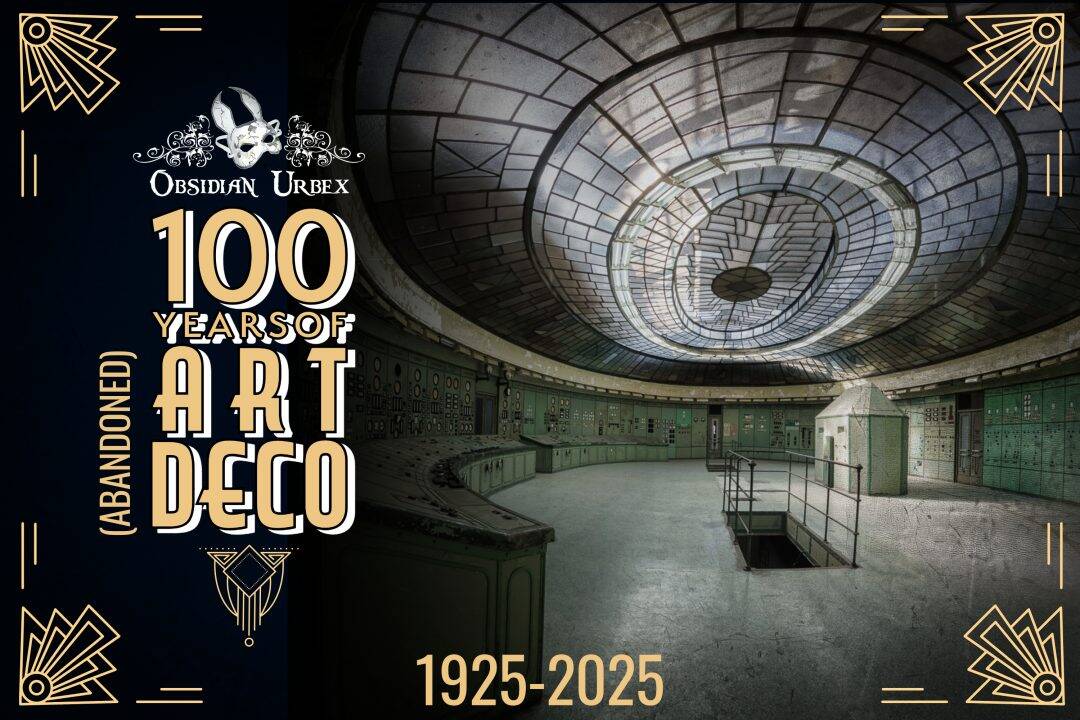
Art Deco’s stylistic roots can be traced back to the late 1900s to early 1910s. Even before the First World War, there were signs a style revolution was beginning. The ornate organic forms of Art Nouveau were beginning to be replaced by more classic, symmetrical geometries and Cubist-inspired simple cut stone.
Art Deco emerged, in the true definition, in the aftermath of the First World War. After such dark times, people wanted something new and optimistic, a style that embraced the bright and shiny future ahead. Its formal debut came with the Exposition Internationale des Arts Décoratifs et Industriels Modernes (International Exhibition of Modern Decorative and Industrial Arts) held in Paris on 28th April, 1925.
Four thousand people gathered at the exhibition, representing regions across France as well as invited nations. The movement represented a shift towards modernism. The ornate styles of the 19th century were shunned in favour of sleek lines, bold shapes, and industrial materials.
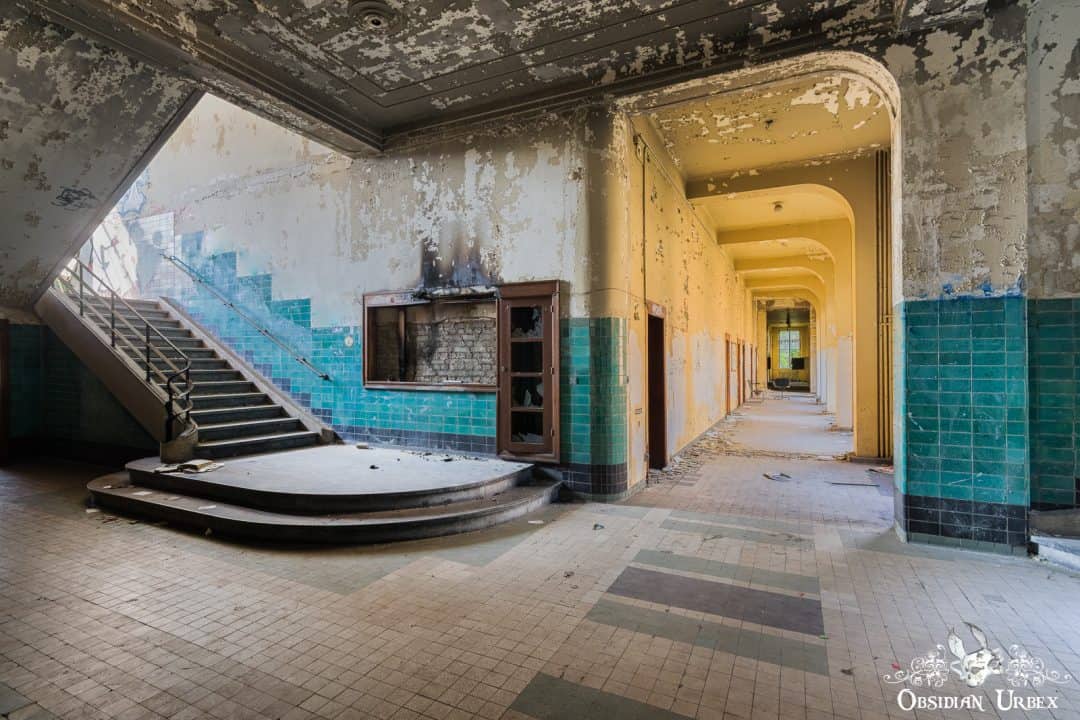
Art Deco embodies the optimism and energy of the Roaring Twenties. There are clear influences from Cubism and Futurism, in addition to ancient Egypt and Aztec design. It was the first truly international architectural style, spreading rapidly across Europe, North America, Asia, and Australasia during the 1920s and 1930s.
In the mid-1930s, Art Deco evolved into Streamline Moderne. Geometric design and sunbursts disappeared and were replaced by smoother lines and nautical influences.
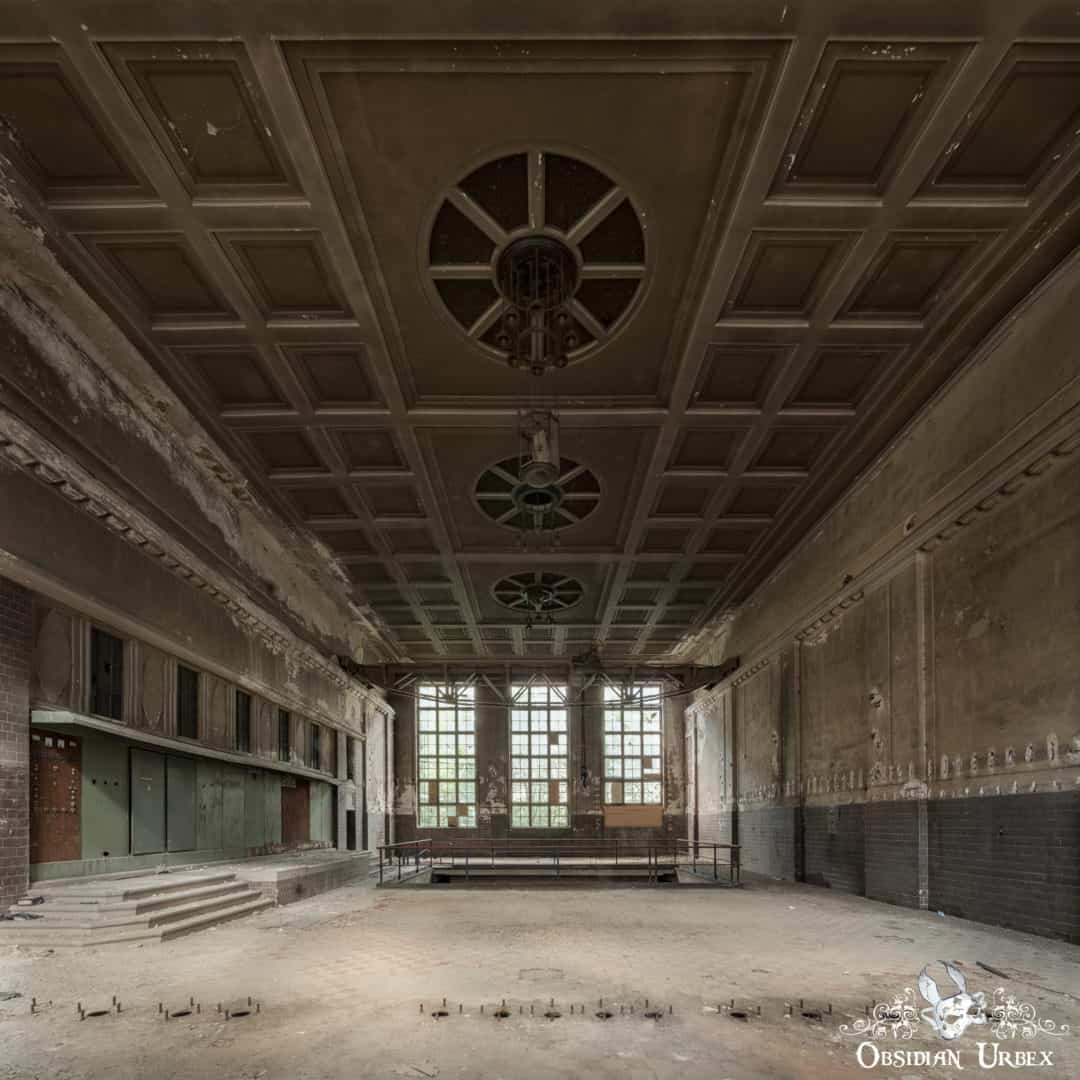
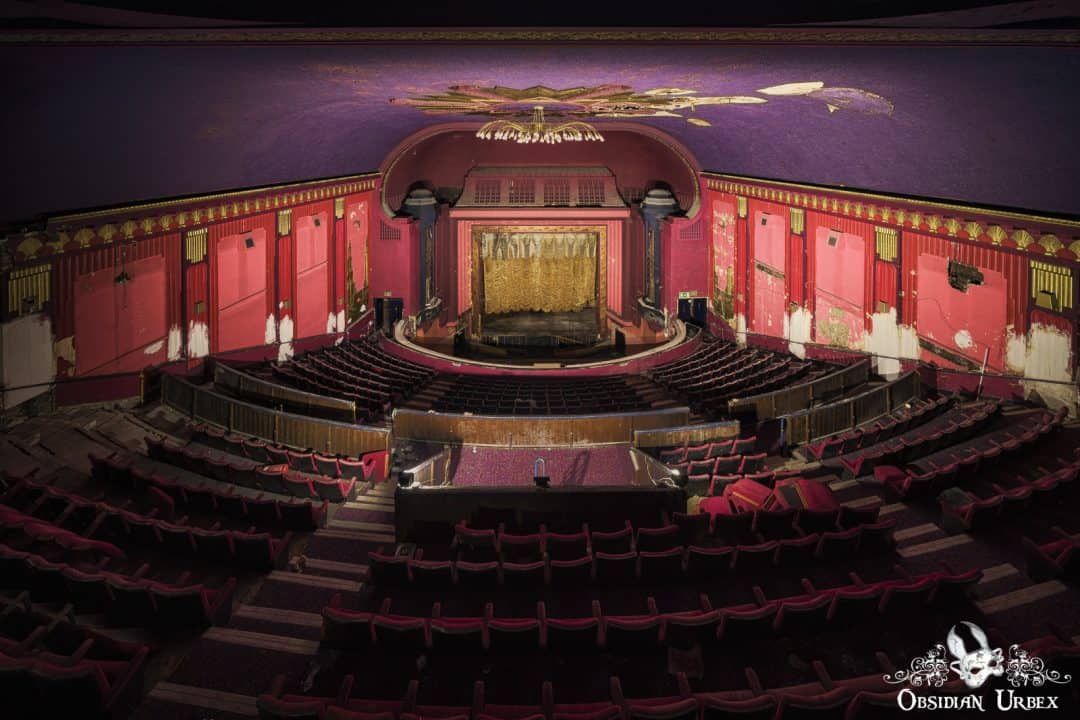
Art Deco architecture can be found in everything from industrial and municipal structures to automobiles and homes. Several defining features immediately identify the style:
Please enjoy this photographic collection, hand-picked from my hoard of images of beautiful lost places all over the world.
Seen a photo that piques your interest? Click the linked title to open up a dedicated article, featuring a historic or story-driven write-up and a full gallery of photos.
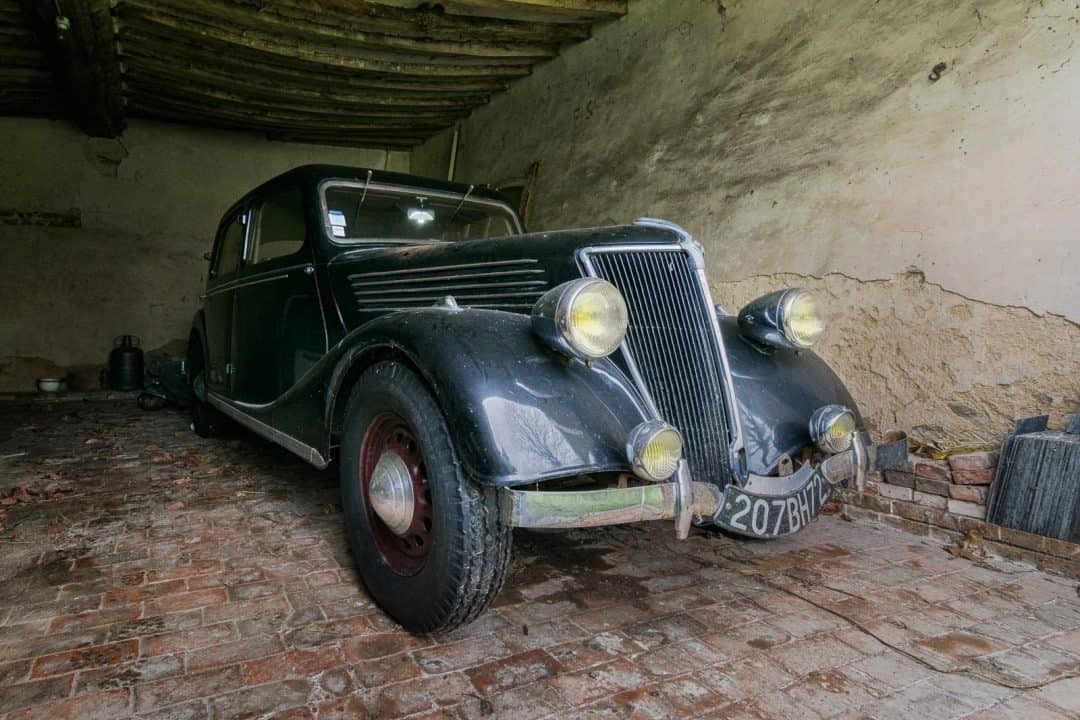
A striking Art Deco-style 1937 Renault Celtaquatre languishes inside a dusty garage, within the grounds of an abandoned chateau in France.
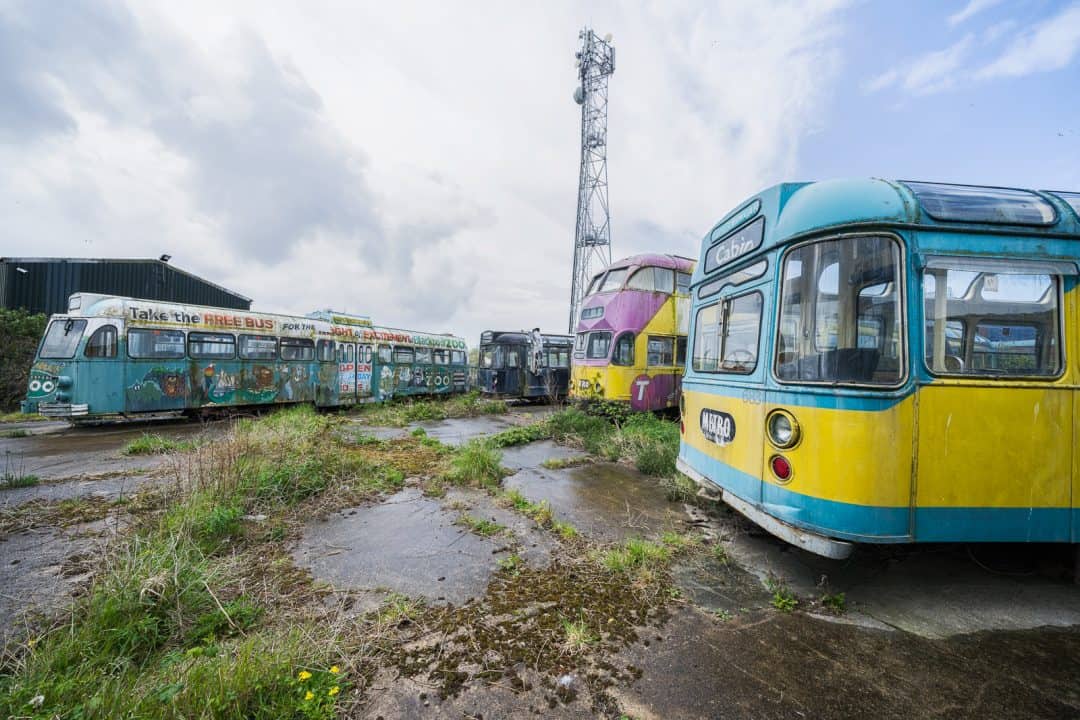
These Vintage Seaside Trams were iconic. They ferried Blackpool holidaymakers for 80 years, until the tram system was modernised in 2012.
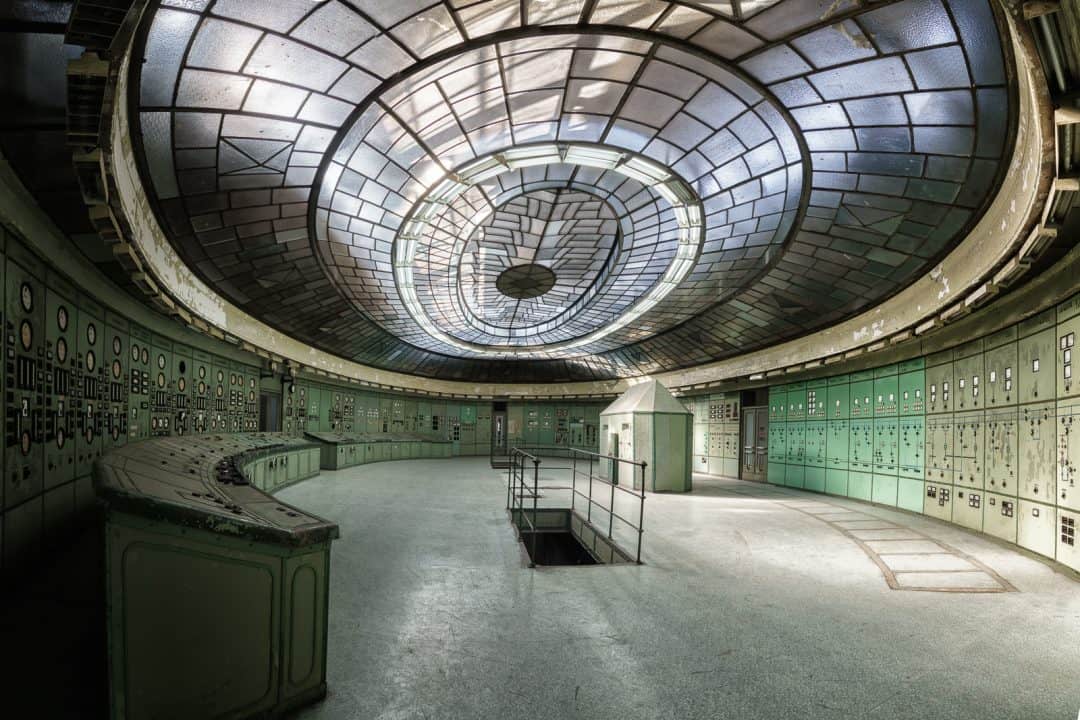
Special K is an abandoned Art Deco power station control room in Hungary. The oval room features an immense skylight, reminiscent of an all-seeing eye. |
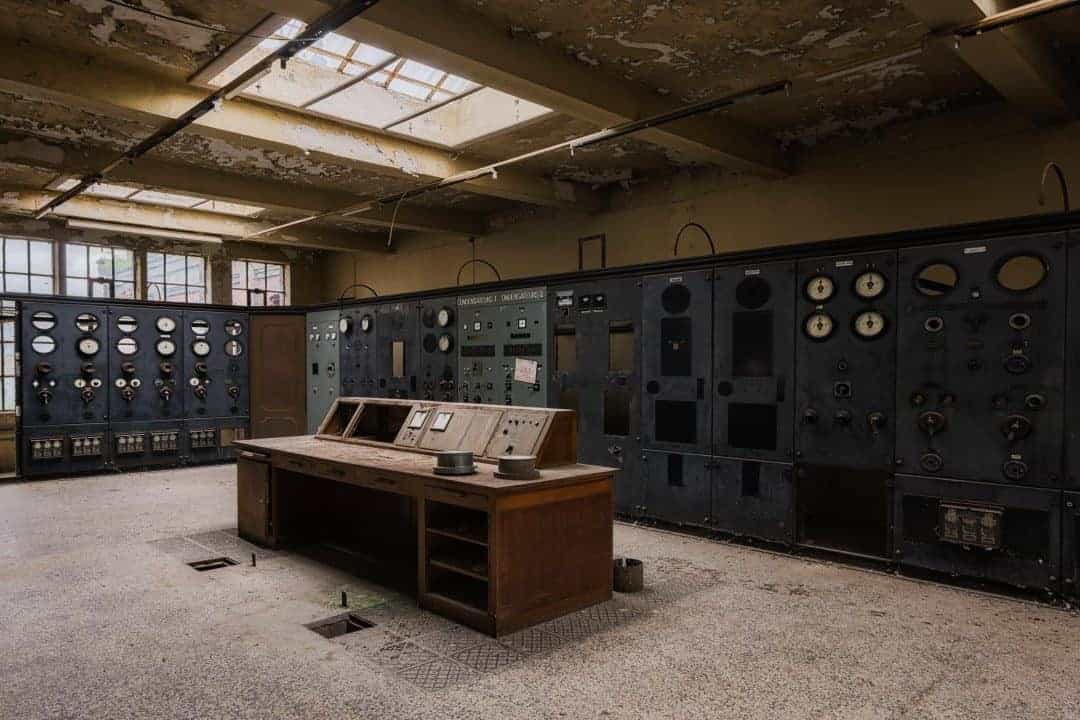
Steampunk Commander is a vintage powerplant control room in Belgium. The Art Deco control room walls are lined with blue control panels, and many dials.
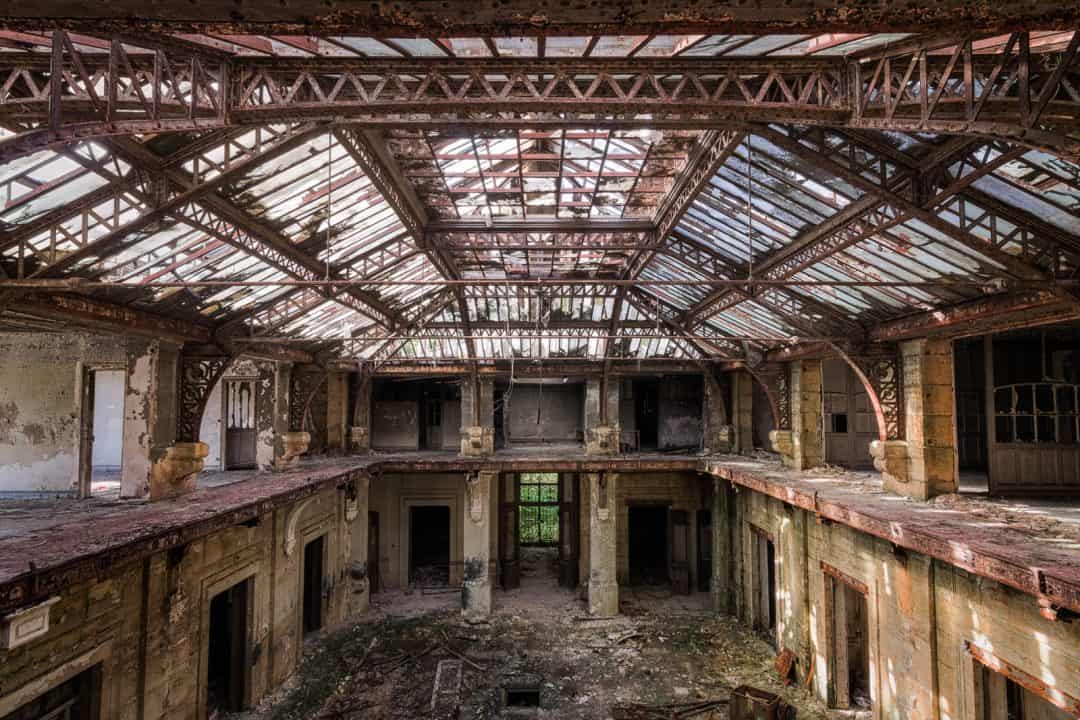
Bureau Central was the main offices for a family run steelworks. The impressive courtyard has an immense glass skylight supported by steel girders.
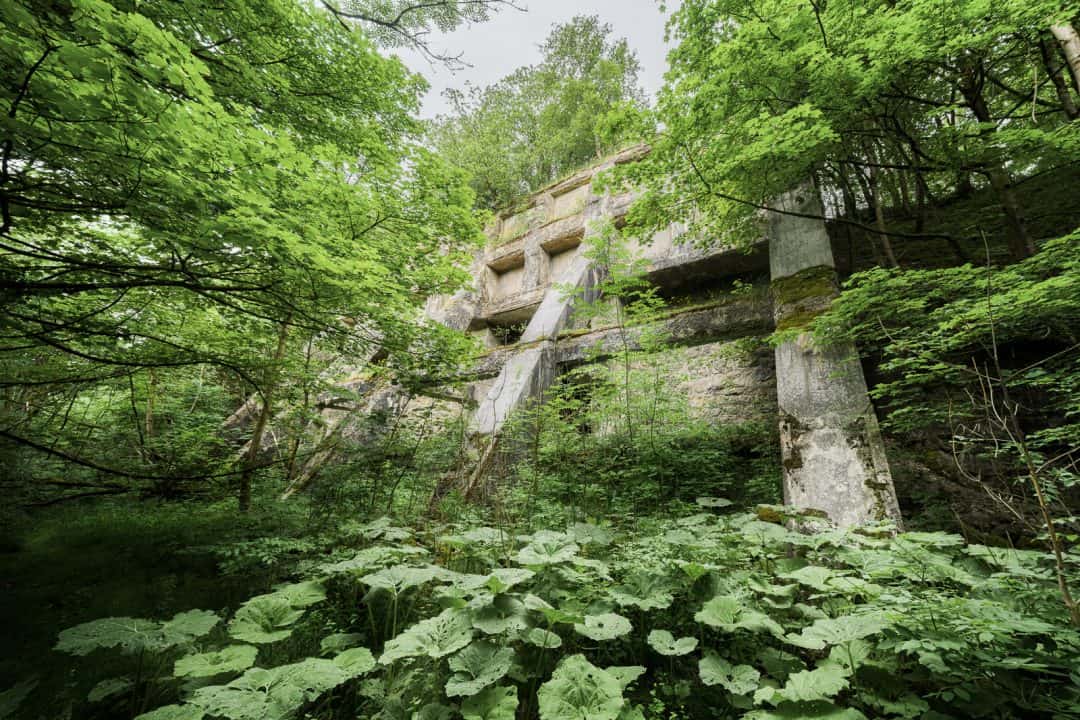
Cowdale Quarry, abandoned for 70 years, is now being reclaimed by the forest. The concrete ruins rise out of the overgrowth dramatically.
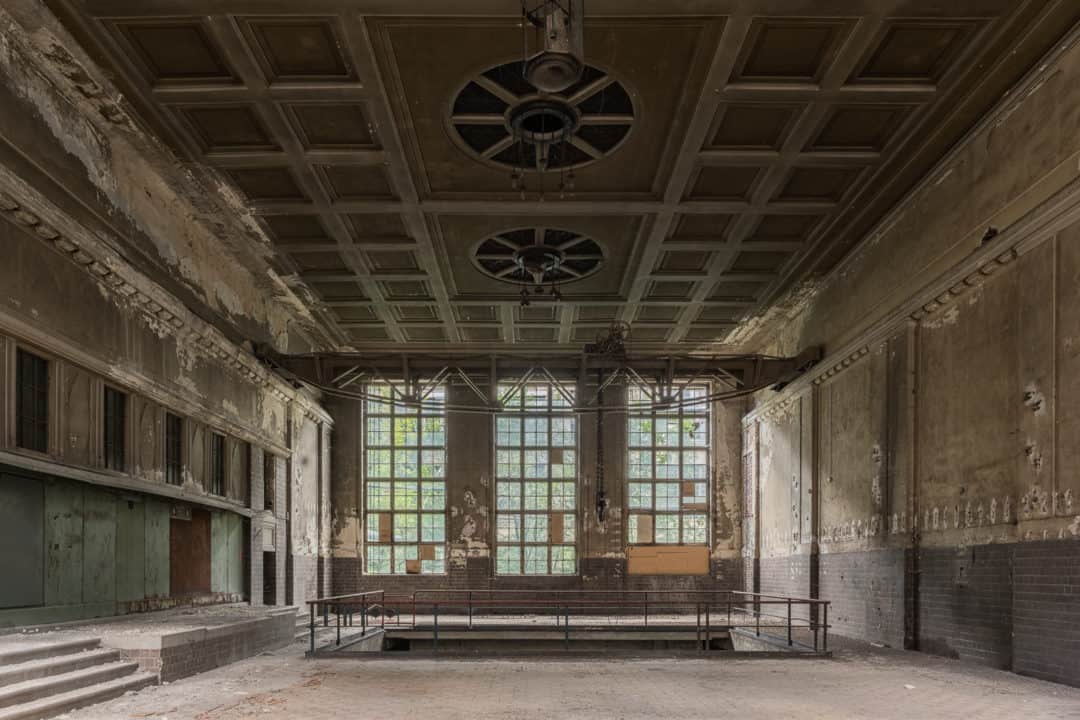
Industrial Dancefloor is an abandoned Art Deco power house in Germany. The company originally made bicycles and typewriters. Later, they produced cars.
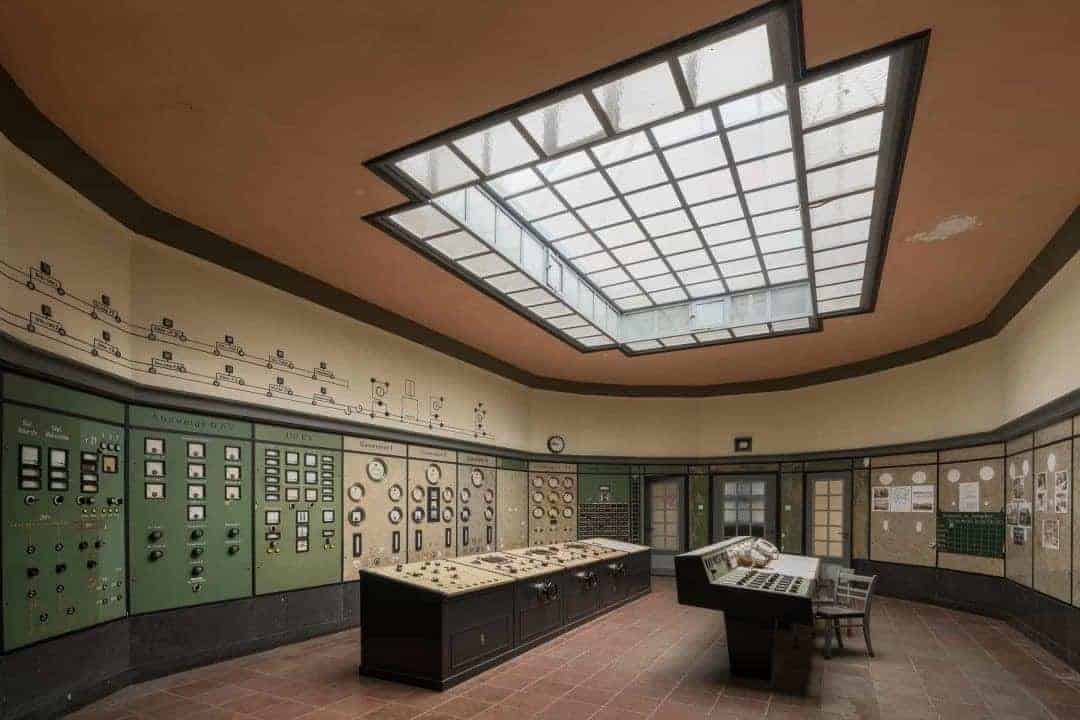
Kraftwerk P is a disused coal-fired power station in Germany. Colourful Art Deco control room, pristine black gas turbine and labyrinth boiler house.
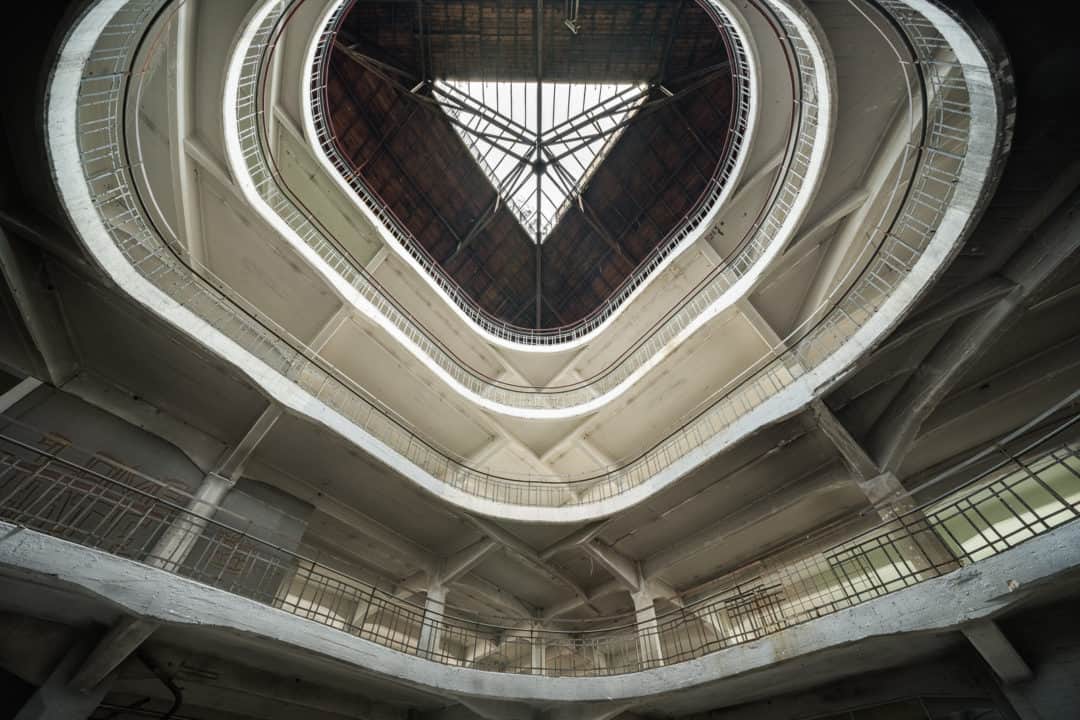
The Quake Arena is an impressive warehouse in Germany. The four-storey building has a triangular shape, and an iconic large central atrium with skylight.
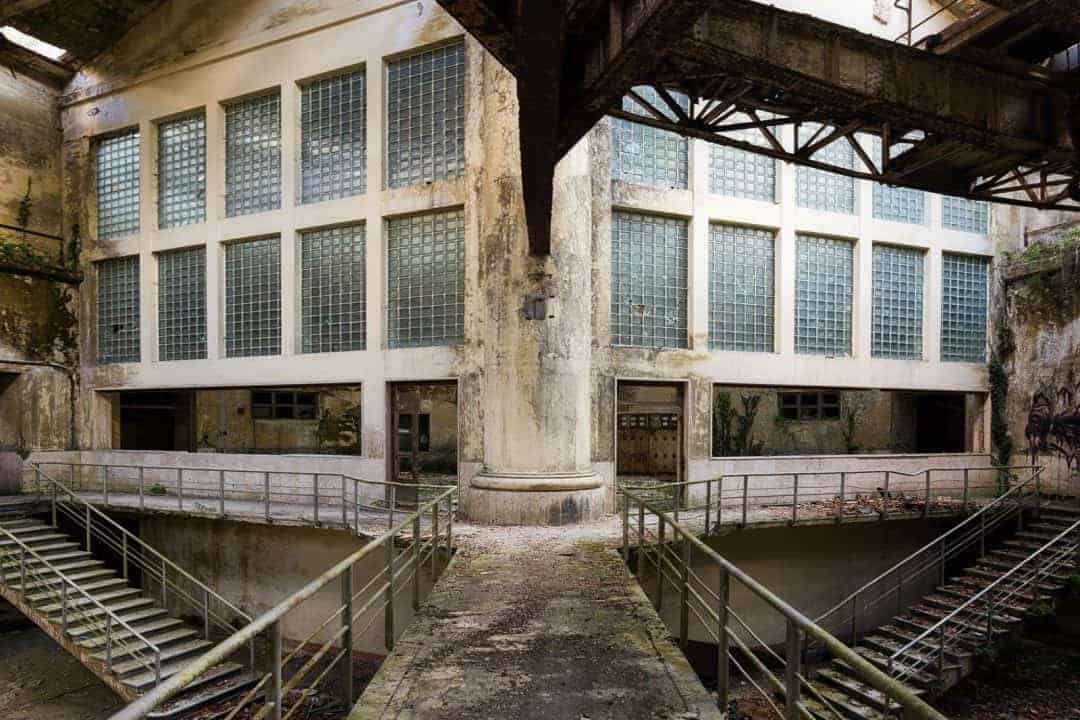
Centrale Idroelettrica is an abandoned hydroelectric power plant in Italy. Water rushes below the crumbling concrete floor, which is nearly 100 years old.
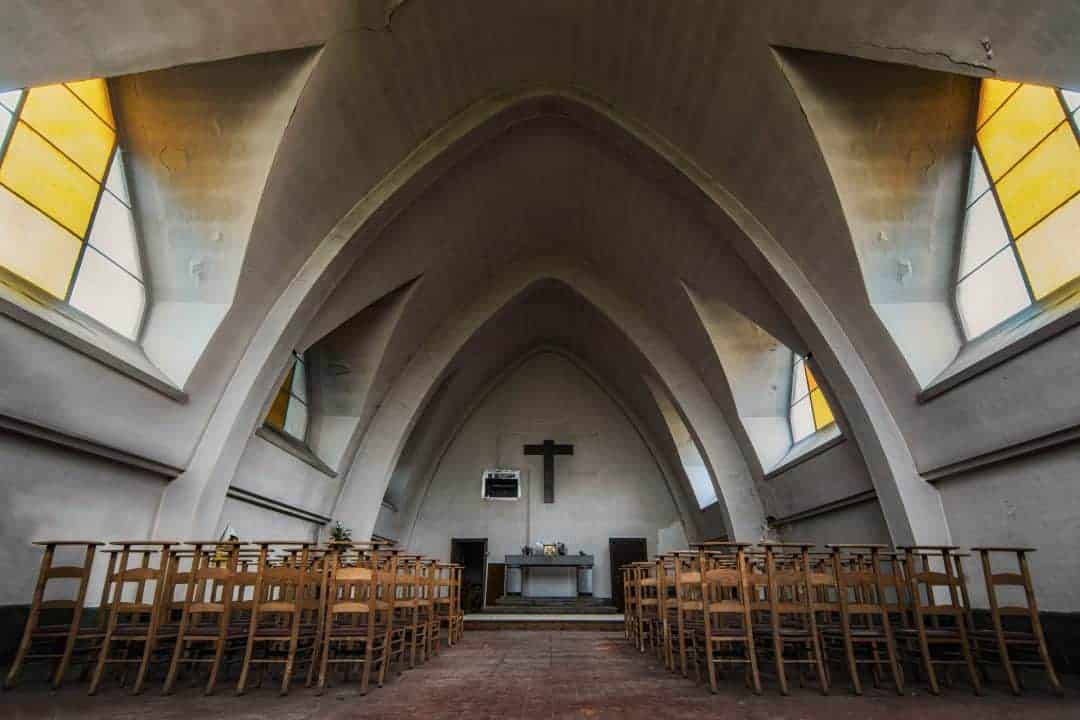
Chapelle Des Mineurs was built in the mid-1930’s and featuring unique Art Deco triangular windows. Photos from 2016 and 2018 show decline into decay.
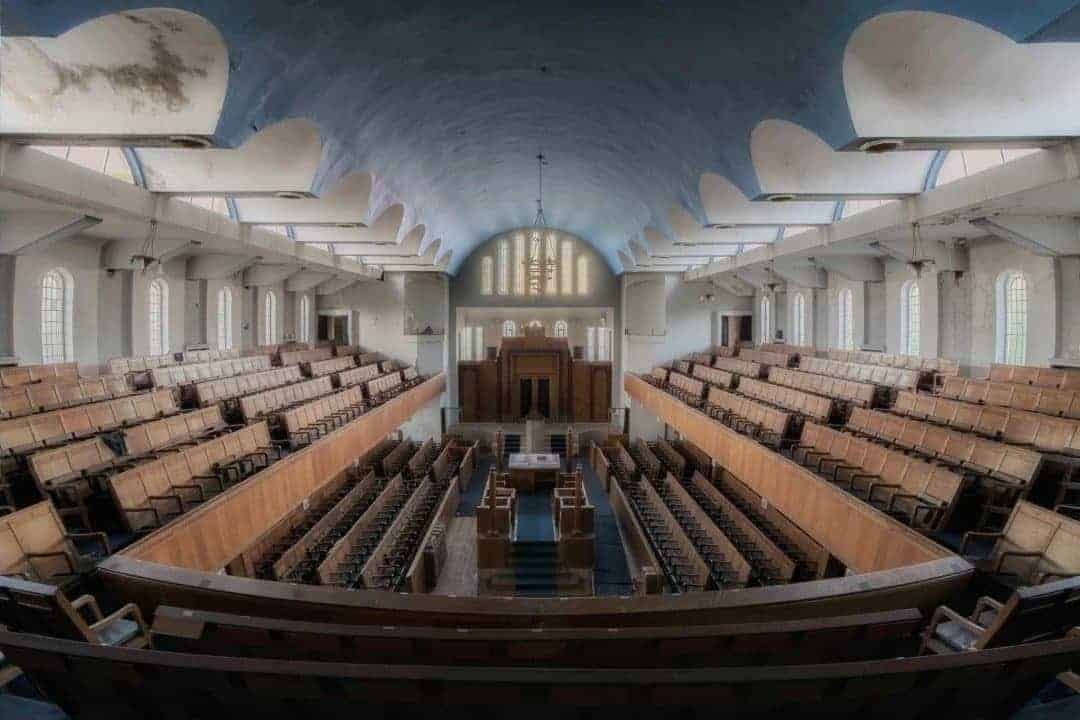
The Ark Synagogue is an abandoned 1930s synagogue, art deco in design with parquet flooring. It closed in the 2000s as the Jewish community declined.
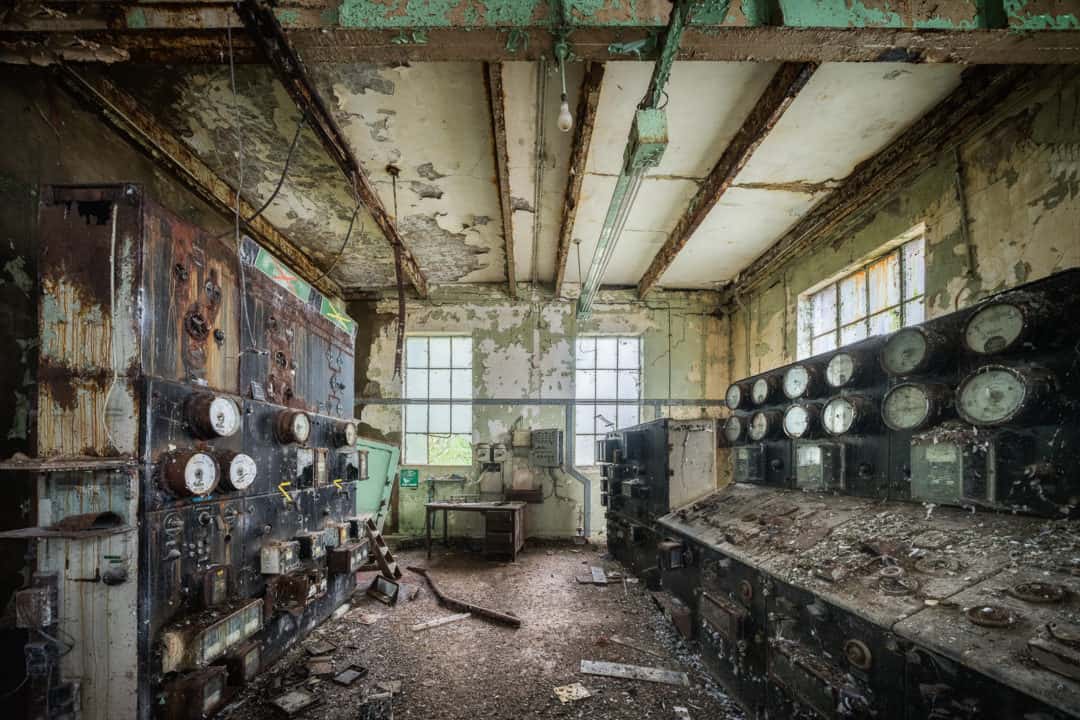
Agecroft A Primary Substation was part of a former power station, built in the 1920s. This small room is packed with Art Deco control panels.
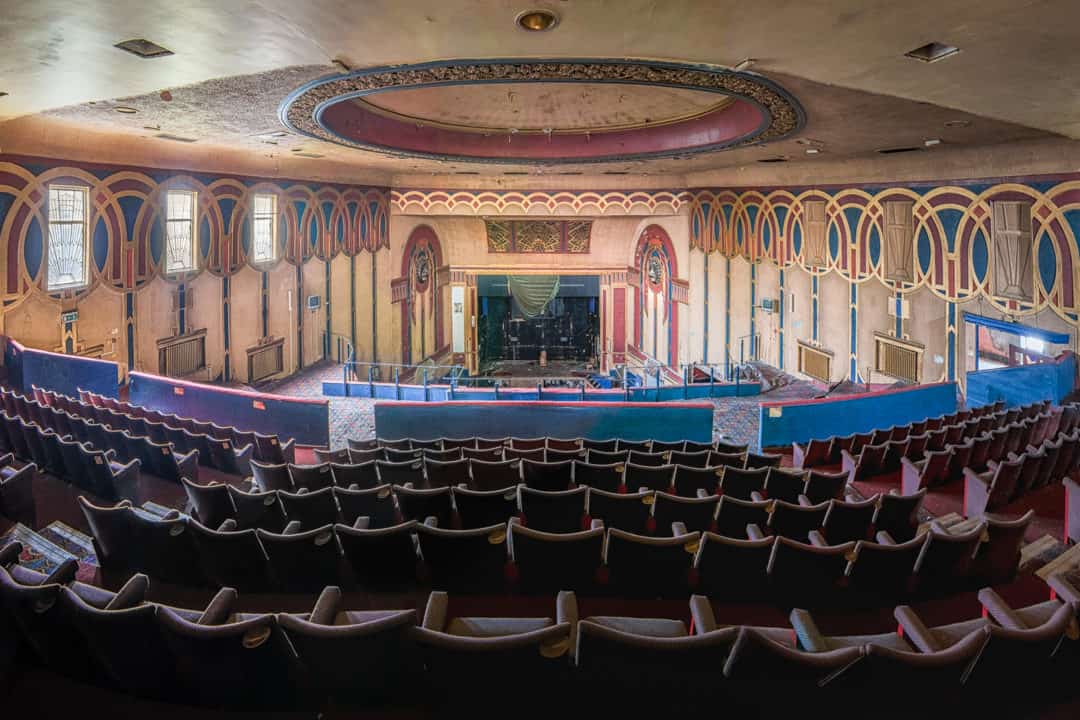
The Royalty Cinema was opened in the 1930s. Grand and lavish Art Deco auditoriums were constructed in Britain at this time.
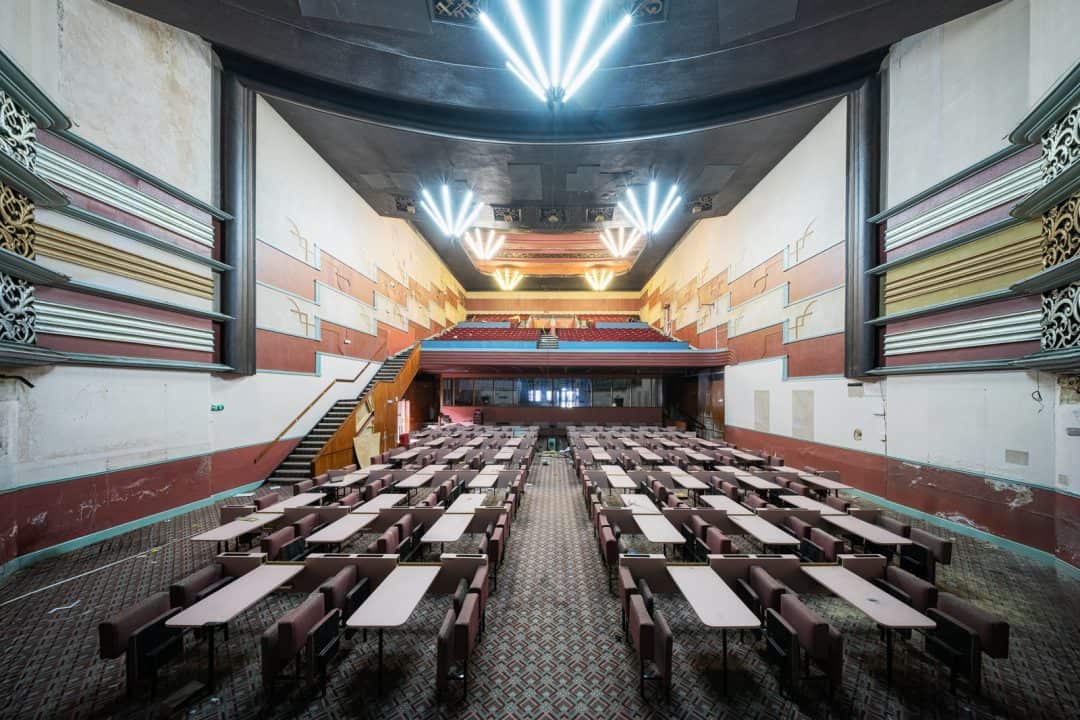
The glitz and glamour of the Ritz Cinema glory days are long gone; this once-impressive Art Deco building was abandoned many years ago. |
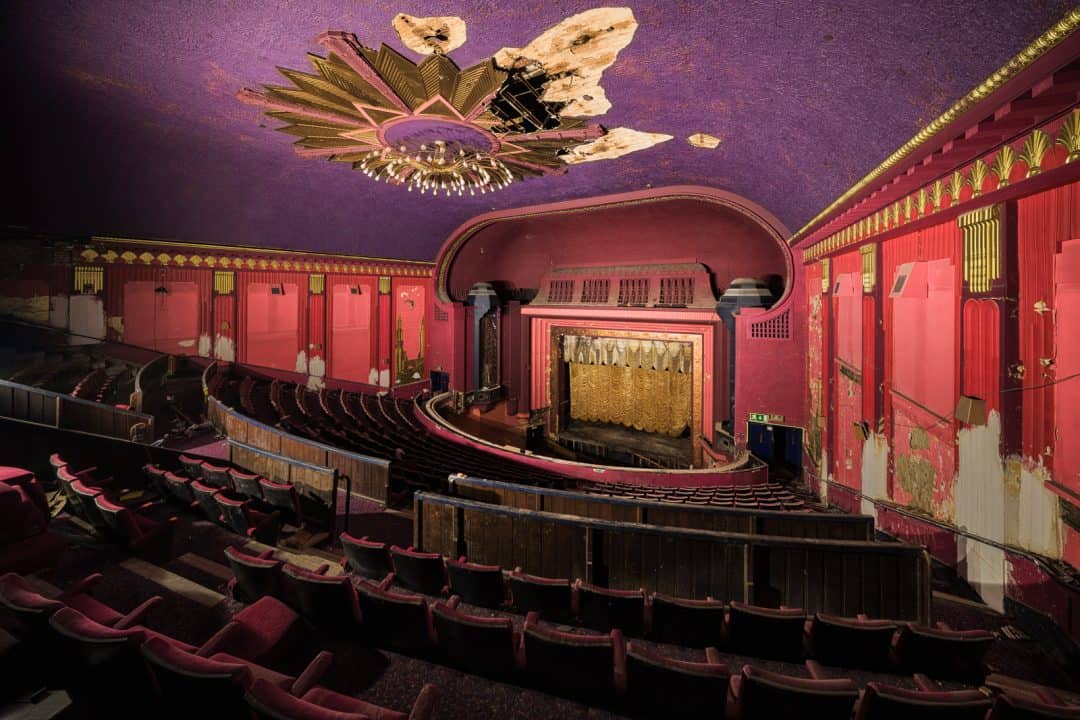
This Purple Art Deco Cinema is hidden in plain sight on a busy city street in England. The last movie screening was 25 years ago.
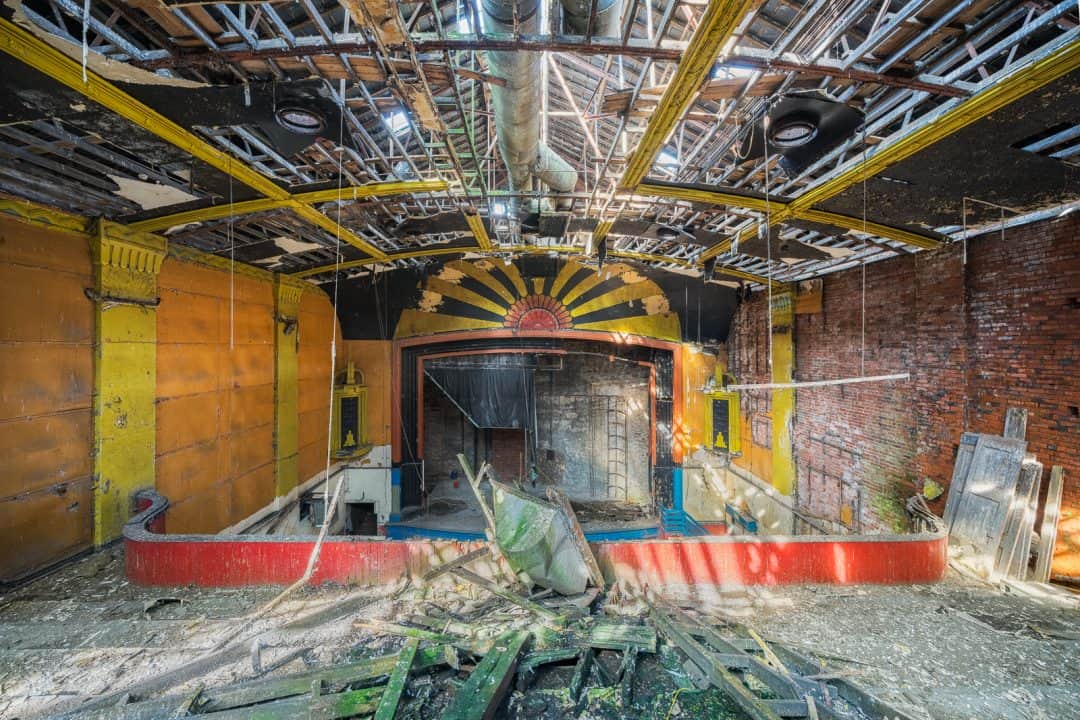
This wonderful Art Deco Cinema was once a movie goers paradise. The once grand building is in ruins after nearly two decades of neglect.
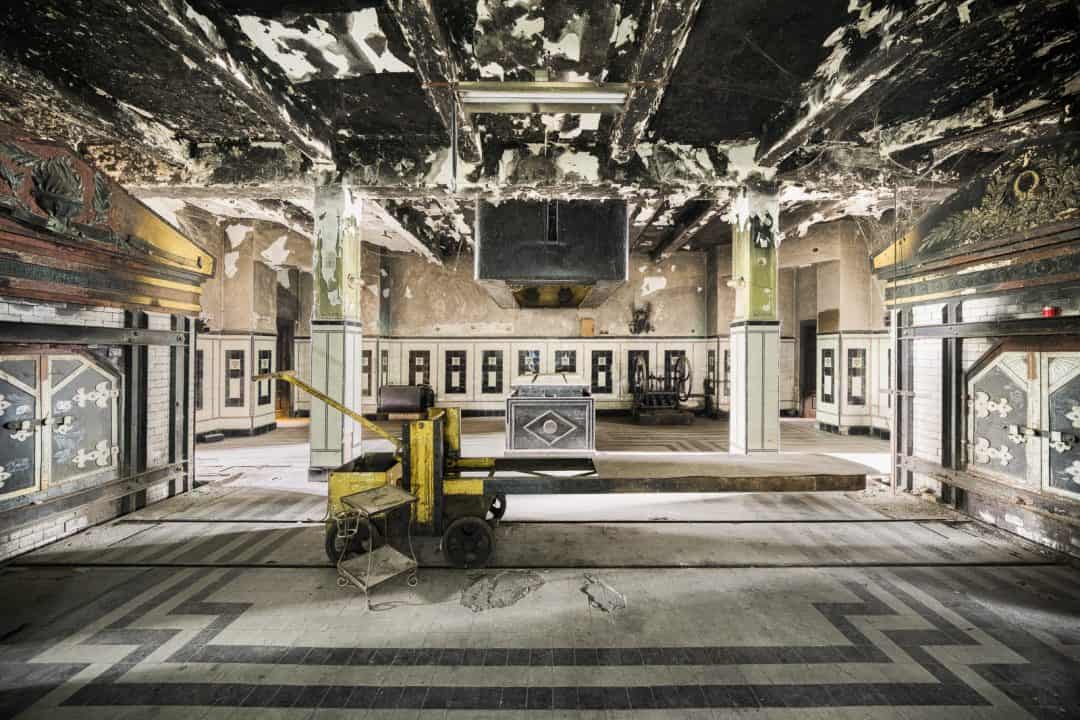
This disused 1920s Crematorium is entwined with 100 years of Romanian history, culture and politics. The design is Art Deco influenced. |
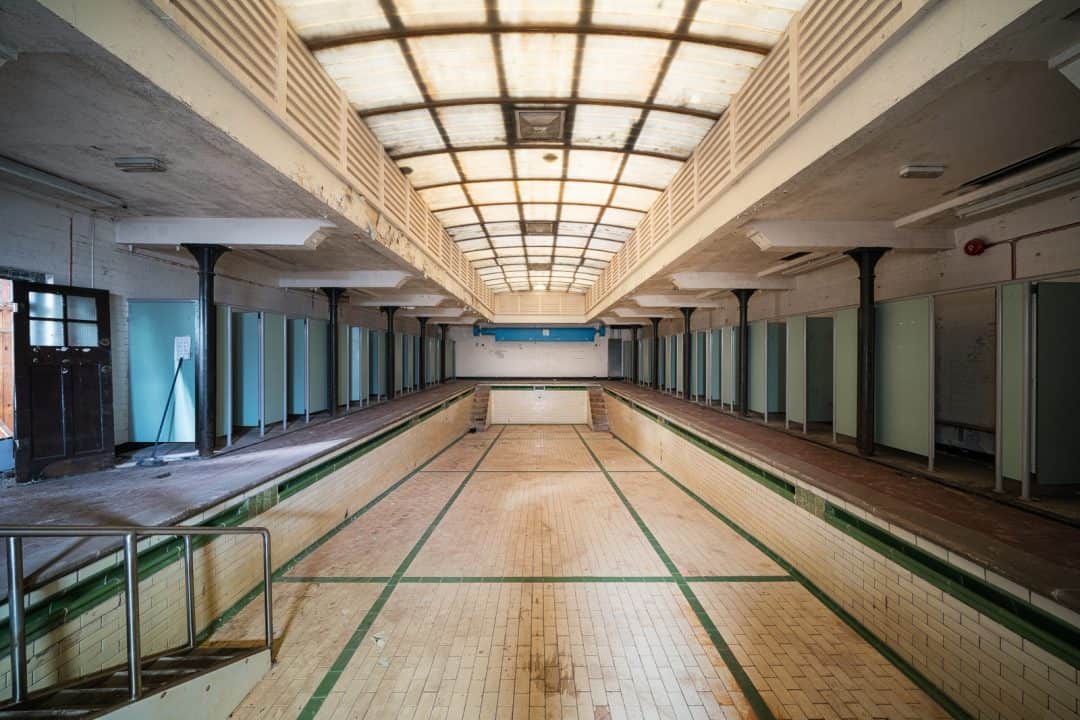
This 1920s Art Deco Swimming Pool & Bath House was where the “unwashed masses” came to socialise and bathe. It closed around 10 years ago.
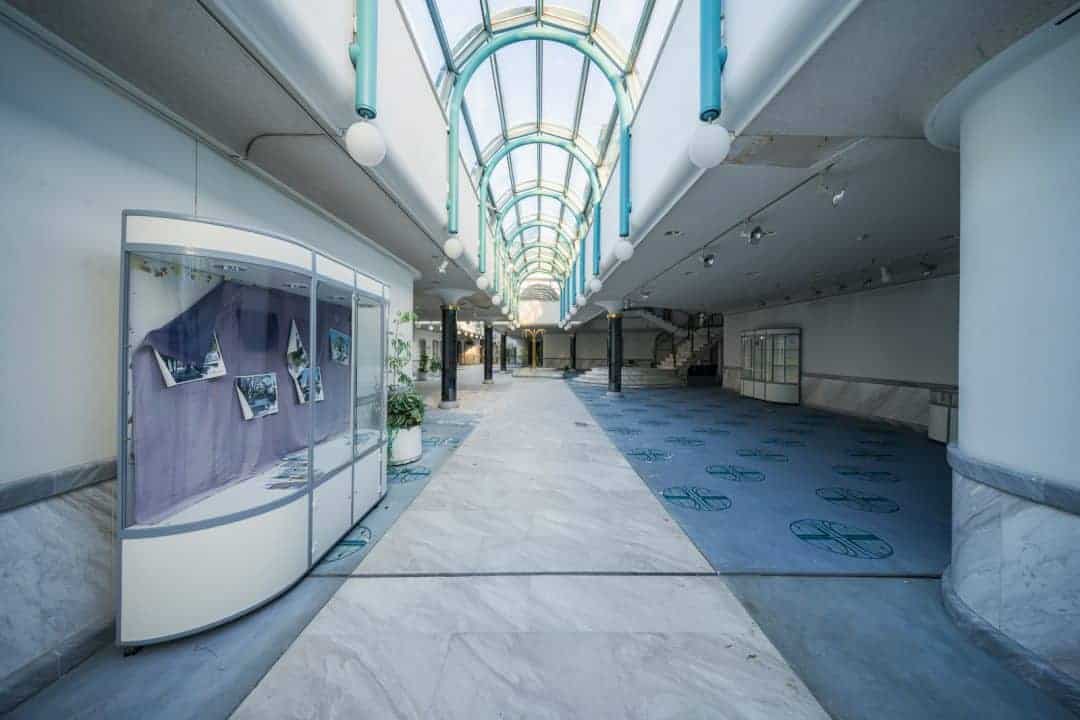
Blau Kurhaus is an abandoned spa/leisure complex in Germany. The spa features natural decay, and was abandoned earlier than other areas.
Note – This is a modern building, in Art Deco style
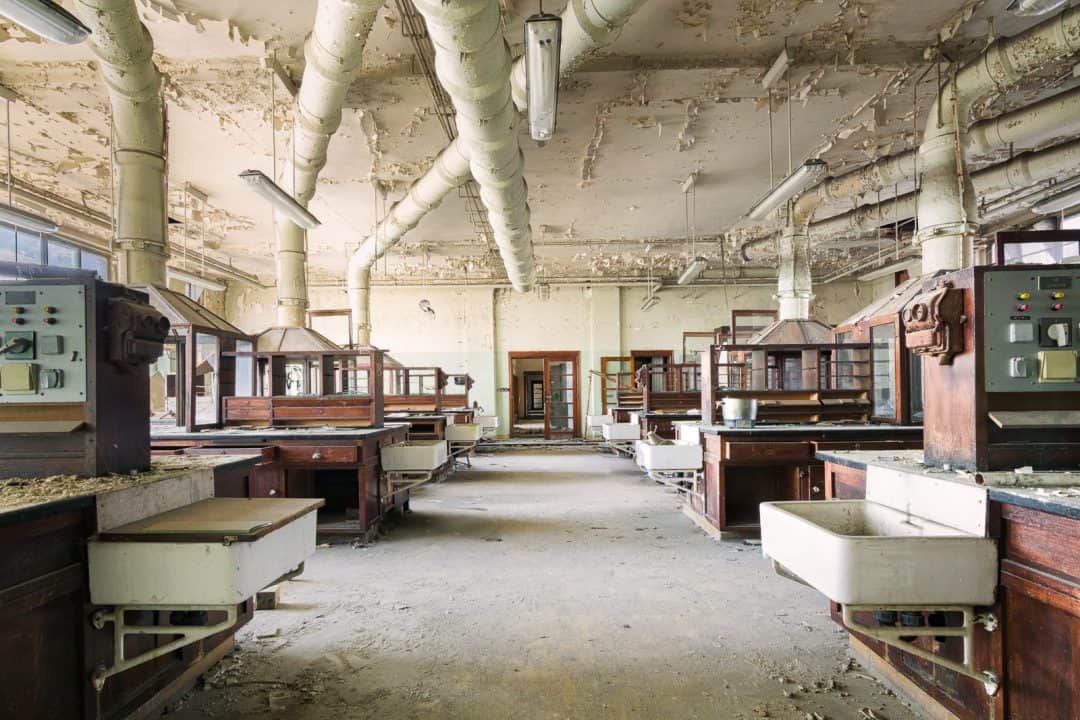
Val-Benoît Institute of Chemistry and Metallurgy, founded 1937, trained generations of Belgium’s scientists. It closed in the early 2000s. |
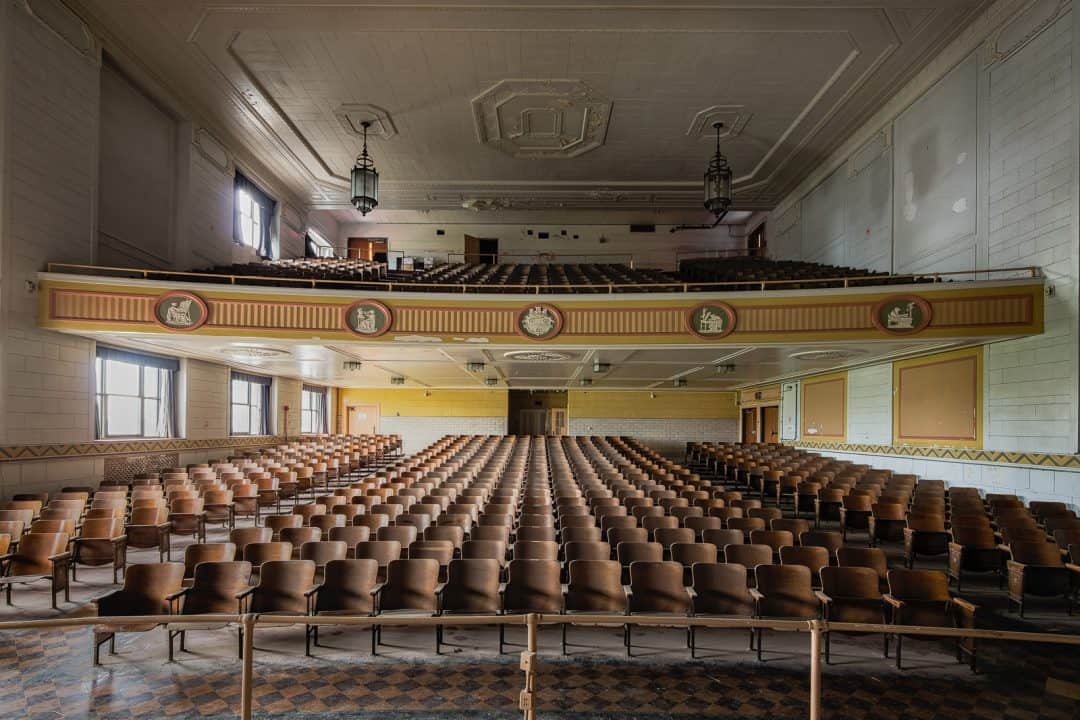
This disused Trade School Auditorium was part of a vocational training centre. The dramatic Art Deco/Classical Revival building closed in the mid-2000s. |
What photograph caught your eye the most? How did this location make you feel? Do you have a question? Let me know by leaving a comment!
I add new content every week, ranging from exciting new locations to blog articles about my road trips. My beautiful newsletter will bring my photographic adventures direct to your inbox!
Your email address will not be shared, or publically displayed. I will only use your data to send you the newsletter, as outlined in the Privacy Policy. You can unsubscribe at any time, via the opt-out link included in every email.
1 - Please do not ask for location addresses, see FAQ.
2 - Your email address will not be shared, or publically displayed. I will only use your data to reply to your message, as outlined in the Privacy Policy
I love Art Deco. I’m amazed that some of these buildings are still intact after years of abandonment, and seemingly in good shape.
I am also a big Art Deco fan as well Gary! Glad you enjoyed the photos <3